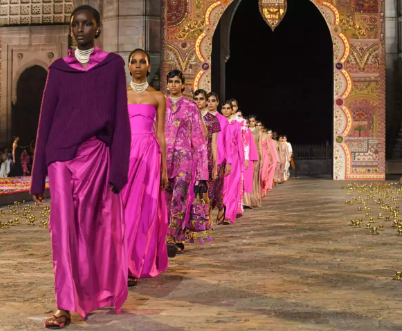
Kapil Dev is a former Indian cricketer and one of the most celebrated players in the history of the sport. Born on January 6, 1959, in Chandigarh, Kapil Dev made his debut for the Indian cricket team in 1978, and over the course of his illustrious career, he became known for his all-round abilities as a bowler, fielder, and batsman.
Kapil Dev was known for his aggressive and fearless approach to the game, and he played a key role in India’s historic victory in the 1983 Cricket World Cup. In that tournament, Kapil Dev led his team to victory over the mighty West Indies in the final, taking five wickets in the match and scoring an unbeaten 175 runs in a crucial game against Zimbabwe.
Throughout his career, Kapil Dev was one of the most successful and consistent bowlers in the world, with his right-arm fast bowling causing problems for even the best batsmen. He took 434 wickets in Test cricket, which was a record for the most wickets taken by a fast bowler until it was broken by Courtney Walsh in 2000.
Kapil Dev was also a talented batsman, with a technique that allowed him to score runs quickly and effectively. He scored 5,248 runs in Test cricket, including eight centuries, and his highest score was an unbeaten 163 against Sri Lanka in 1986.
In addition to his success on the field, Kapil Dev was also known for his leadership skills and was named the captain of the Indian cricket team in 1982. Under his leadership, India won several important matches and series, including the 1985 World Championship of Cricket in Australia.
After retiring from cricket in 1994, Kapil Dev remained involved in the sport, serving as a coach and commentator. In 2002, he was inducted into the International Cricket Council’s Hall of Fame, cementing his place as one of the greatest cricketers of all time.
Overall,
Kapil Dev is a former Indian cricketer and one of the most celebrated players in the history of the sport. Born on January 6, 1959, in Chandigarh, Kapil Dev made his debut for the Indian cricket team in 1978, and over the course of his illustrious career, he became known for his all-round abilities as a bowler, fielder, and batsman.
Kapil Dev was known for his aggressive and fearless approach to the game, and he played a key role in India’s historic victory in the 1983 Cricket World Cup. In that tournament, Kapil Dev led his team to victory over the mighty West Indies in the final, taking five wickets in the match and scoring an unbeaten 175 runs in a crucial game against Zimbabwe.
Throughout his career, Kapil Dev was one of the most successful and consistent bowlers in the world, with his right-arm fast bowling causing problems for even the best batsmen. He took 434 wickets in Test cricket, which was a record for the most wickets taken by a fast bowler until it was broken by Courtney Walsh in 2000.
Kapil Dev was also a talented batsman, with a technique that allowed him to score runs quickly and effectively. He scored 5,248 runs in Test cricket, including eight centuries, and his highest score was an unbeaten 163 against Sri Lanka in 1986.
In addition to his success on the field, Kapil Dev was also known for his leadership skills and was named the captain of the Indian cricket team in 1982. Under his leadership, India won several important matches and series, including the 1985 World Championship of Cricket in Australia.
After retiring from cricket in 1994, Kapil Dev remained involved in the sport, serving as a coach and commentator. In 2002, he was inducted into the International Cricket Council’s Hall of Fame, cementing his place as one of the greatest cricketers of all time.
Overall, Kapil Dev’s contributions to Indian cricket and the sport as a whole have been immense, and his legacy continues to inspire new generations of players around the world.









